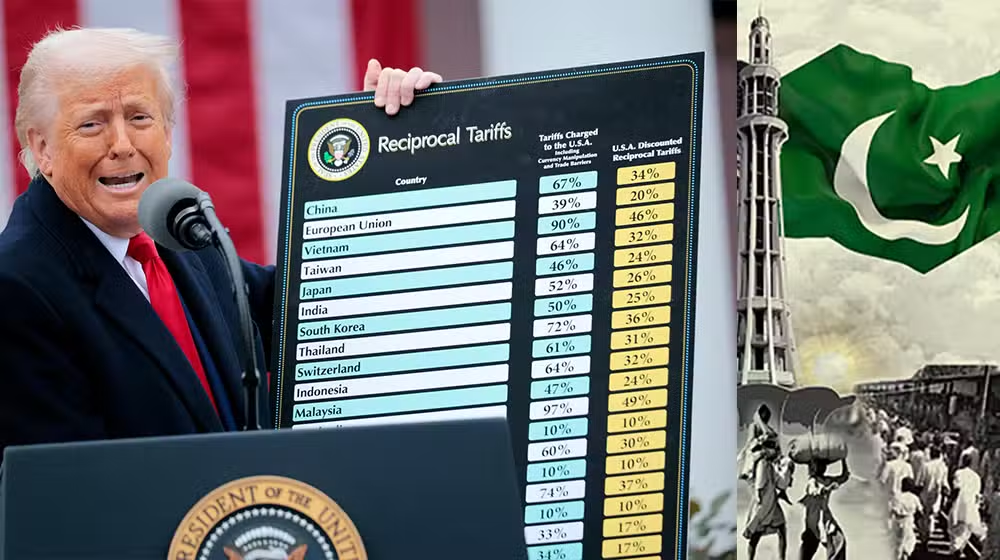The Pakistan Business Council (PBC) has issued a stark warning regarding the United States’ newly imposed 29 percent reciprocal tariff on Pakistani exports.
This move could have far-reaching consequences for Pakistan’s external account balance, particularly if urgent policy and structural reforms are not implemented swiftly.
The United States remains Pakistan’s largest single-country export destination, with $5.46 billion in exports in 2024, comprising 17 percent of Pakistan’s total exports.
A Vital Export Destination for Pakistan
The textile and apparel sector, which accounts for 75 percent of Pakistan’s exports to the US, will be hit particularly hard by the new tariffs. However, while the 29 percent tariff rate is concerning, Pakistan’s key competitors face even higher tariffs.
- China: 54%
- Vietnam: 46%
- Bangladesh: 37%
- Indonesia: 32%
- India: 26%
Competitors like India and Vietnam offer better value-added textiles at competitive prices, making it difficult for Pakistan to capture a larger share of the US market.
The PBC has advised against retaliatory measures, emphasizing that Pakistan lacks both economic and geopolitical leverage to effectively counteract these tariffs.
- Human rights and labor laws
- Environmental protection regulations
- Diversity, Equity, and Inclusion (DEI) standards
Energy and Taxation Issues
For Pakistani exporters to withstand these tariffs, the government must address domestic policy bottlenecks, including:
- High energy tariffs, which inflate production costs.
- An inefficient taxation regime, which discourages business investment.
- Delays in the Export Facilitation Scheme, which hinder duty-free access to essential inputs.
This measure would reduce production costs and improve export competitiveness. Without such relief, Pakistan’s textile sector will struggle to absorb the financial burden imposed by the new US tariffs.
This could apply to textiles manufactured using US-grown cotton. PBC has raised concerns regarding price competitiveness, noting that US cotton is currently 10 to 12 cents per pound more expensive than Brazilian cotton.
Limited Scope for Increasing US Imports
Some have suggested that Pakistan could increase imports from the US to rebalance the trade relationship.
This is unlikely to have a meaningful impact given that US exports to Pakistan totaled only $2.13 billion in 2024, primarily consisting of:
- Cotton
- Scrap iron
- Machinery
- Aircraft parts
WThere has been no significant movement in key sectors like power generation, aviation, or infrastructure.
As global exports to the US decline due to new tariffs, Pakistan risks becoming a dumping ground for cheap goods from other countries.
The PBC has called for urgent improvements in Pakistan’s trade defense policies, warning that failure to act could lead to a flood of substandard imports, harming local industries.


